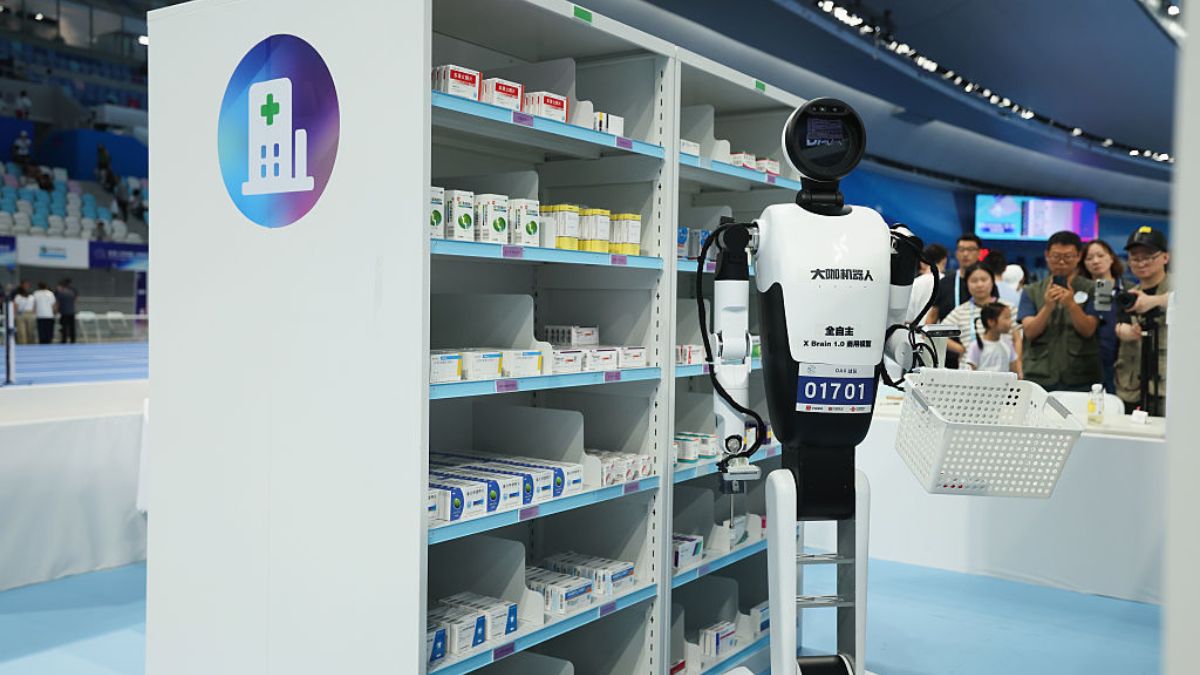
Chinese researchers are developing what they claim to be the world’s first humanoid pregnancy robot equipped with an artificial womb capable of carrying and delivering human babies. The project, led by Dr. Zhang Qifeng from Kaiwa Technology in Guangzhou, has sparked worldwide debate about the future of reproductive technology and ethics.
The robot is designed with a synthetic uterus inside its abdomen, connected by tubes that deliver nutrients to a fetus similar to how an umbilical cord works. Unlike traditional incubators, the artificial womb would contain synthetic amniotic fluid to create conditions that mimic natural pregnancy. The company plans to debut a prototype as early as 2026 at a price of around 100,000 yuan, which is about $14,000.
According to Chosun Biz, Zhang, who has a PhD from Nanyang Technological University in Singapore, “the artificial womb technology is already in a mature stage, and now it needs to be implanted in the robot’s abdomen so that a real person and the robot can interact to achieve pregnancy, allowing the fetus to grow inside.” Zhang claims the robot could carry a pregnancy for about 10 months before giving birth, potentially offering an alternative to traditional surrogacy.
Technology builds on existing artificial womb research
The pregnancy robot concept builds on years of scientific research into artificial womb technology. In 2017, researchers at the Children’s Hospital of Philadelphia successfully kept premature lambs alive for weeks inside a “biobag” filled with synthetic amniotic fluid. That study showed lambs could survive and develop normally for up to 28 days in the artificial environment.
However, current artificial womb technology works more like neonatal incubators, supporting life only after partial pregnancy development. For Zhang’s concept to work, the technology would need to advance significantly to support fertilization, implantation, and full-term pregnancy. Zhang has not disclosed specific details about how the robot would handle these complex biological processes, leaving many questions about the scientific feasibility of such advanced technological breakthroughs.
More info
— Global Statistics (@Globalstats11) August 19, 2025
Scientists in China are developing the world's first pregnancy robot, a humanoid machine designed to carry a fetus to term and give birth to a live baby.
According to Daily Mail, the robot wlillbe equipped with an artificial womb that mimics natural gestation.… pic.twitter.com/BV9YBITb6u
The announcement has triggered intense public discussion on Chinese social media platforms. The hashtag about the world’s first pregnancy robot gained over 100 million views on Weibo. Some supporters see the technology as offering new options for infertility treatment and potentially liberating women from the physical burdens of pregnancy. Critics, however, raise concerns about ethical issues similar to those depicted in science fiction, including questions about fetal-maternal bonding and the psychological effects on children born through robotic gestation. Zhang’s team has already begun discussions with authorities in Guangdong Province about policy and legal frameworks, submitting proposals for legislative review to address the ethical and regulatory challenges ahead.







